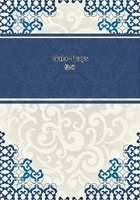
第93章
But, independent of this special rule, Harvard College was founded in the early days of the Colony. It was the pet and pride and hope of the colonists. They gave to it of their abundance and their poverty. To what end? "Dreading to leave an illiterate ministry to the churches," says the author of "New England First-Fruits." The first Constitution of the College declares one of its objects to be "to make and establish all such orders, statutes, and constitutions as they shall see necessary for the instituting, guiding, and furthering of the said College, and the several members thereof, from time to time, in piety, morality, and learning."Later, its objects are said to be "the advancement of all good literature, arts, and sciences," and "the education of the English and Indian youth of this country in knowledge and godliness." Of the rules of the College, one is, "Let every student be earnestly pressed to consider well the main end of his life and studies is, to know God and Jesus Christ, which is eternal life, and, therefore, to lay Christ in the bottom, as the only foundation of all sound knowledge and learning."Quincy says that to the Congregational clergy the "institution is perhaps more indebted than to any other class of men for early support, if not for existence." That it has not avowedly turned aside from its original object is indicated by the motto which it still bears, Christo et Ecclesiae. Now I wish to know if the official sanction of this College, founded by statesmen-clergy for the promotion of piety and learning, to further the welfare of the State, consecrated to Christ and the Church, is to be given to a practice which no one will maintain positively conduces to either piety or learning, which many believe to be positively detrimental to both, and which an overwhelming majority of the clergy who founded the College, and of their ecclesiastical descendants at the present day, would, I am confident, condemn, and yet is not to be publicly spoken of, because it is a private affair! Has it any right to privacy? Does the College belong to a Senior Class, or to the State? Have the many donations been given, and the appropriations been made, for the pleasure or even profit of any one class, or for the whole Commonwealth? Has any class any right to introduce in any College hall, or anywhere, as a College class, with the sanction of the Faculty, a custom which is entirely disconnected with either learning or piety, a custom of doubtful propriety, not to say morality inasmuch as many believe it to be wrong, and a custom, therefore, whose tendency is to weaken confidence in the College, and consequently to restrict its beneficence? And is the discussion of this thing a violation of the rites of hospitality?
These are my counts against "Class-Day," as it is now conducted. It contains much that is calculated to promote neither learning nor godliness, but to retard both. Neither literary nor moral excellence seems to enter as an element into its standard. In point of notoriety and popular interest it seems to me to reach, if not to over-top, Commencement-Day, and therefore it tends to subordinate scholarship to other and infinitely less important matters. It in a manner necessitates an expenditure which many are ill able to bear, and under which, I have reason to believe, many parents do groan, being burdened. It has not the pleasure and warmth of reunion to recommend it, for it precedes separation. The expense is not incurred by men who are masters of their own career, who know where they stand and what they can do; but chiefly by boys who are dependent upon others, and whose knowledge of ways and means is limited, while their knowledge of wants is deep and pressing and aggressive. It is an extraordinary and unnecessary expense, coming in the midst of ordinary and necessary expense, while the question of reimbursement is still entirely in abeyance. It launches young men at the outset of their career into extravagance and display,--limited indeed in range, but rampant within that range,--and thereby throws the influence of highest authority in favor of, rather than against, that reckless profusion, display, and dissipation which is the weakness and the bane of our social life. It signalizes in a marked and public manner the completion of the most varied and thorough course of study in the country, and the commencement of a career which should be the most noble and beneficial, not by peculiar and appropriate ceremonies, but by the commonest rites of the lecture-room and ball-room; and Icannot but think that, especially at this period of history, when no treasure is esteemed too precious for sacrifice, and the land is red with the blood of her best and bravest,--when Harvard herself mourns for her children lost, but glories in heroes fallen,--that the most obvious and prominent customs of Class-Day would be more honored in the breach than in the observance.